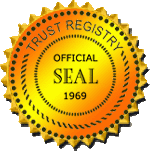Weird Stupid LawsuitsSue Chuck E. Cheese For Kids GamblingSAN DIEGO — A San Diego woman has sued the company that owns the Chuck E. Cheese’s family restaurant chain, claiming that many of the games intended for children at these locations are actually illegal gambling devices — like slot machines.Denise Keller, a local real estate agent and mother of two daughters ages 3 and 5, filed the potential class-action suit in U.S. District Court March 29. According to court documents, she is asking for a jury trial and damages and restitution of at least $5 million. But attorney Eric Benink, who represents Keller, said the money is a secondary issue. The purpose of the lawsuit, he said, is to prevent Texas-based CEC Entertainment Inc., which owns and operates the restaurants in 48 states, from keeping the machines in its game rooms. “We don’t think that children should be exposed to casino-style gambling devices at an arcade,” Benink said, adding that the games take only a few seconds to play and some of them feature a roulette-style wheel. According to the complaint, many of the games in these rooms are operated by inserting tokens, which can be purchased for 25 cents each. When the games are finished, they dispense tickets that can be redeemed for prizes. The lawsuit notes that with some exceptions, gambling is illegal in California but the penal code makes an exception for games that are predominantly based on skill. That’s not the case with the games at Chuck E. Cheese’s, according to Keller, who claims in the court documents that she has taken her own children on numerous occasions to the restaurant’s location in La Mesa’s Grossmont Center. Instead, the suit says, the games are based mostly on chance, and that they could foster addictive behavior in children by enticing them to play repeatedly for tickets. It says the games “create the same highs and lows experienced by adults who gamble their paychecks or the mortgage payment.” Calls to CEC Entertainment’s attorneys were not immediately returned Thursday. They have argued in court documents that the games are not illegal under state law. The attorneys contend that the California Legislature never intended to make operating a children’s arcade game a criminal act. Instead, they say, recent amendments to the law show that lawmakers were primarily concerned with the potential for “video slot machines masquerading as legal video games.” CEC notes that even if the arcade games were illegal, then Keller is an admitted participant in the illegal gambling. Therefore, she should be barred from seeking any damages or restitution. Attorneys for the company have asked a federal judge to dismiss the case. The judge has not yet ruled on that request. The Protection Book for Planning, Privacy, & Protection!Copyright © 1995 -
 
|
